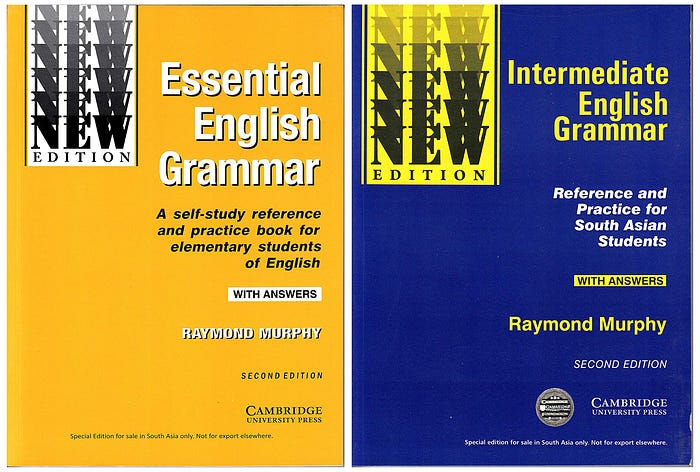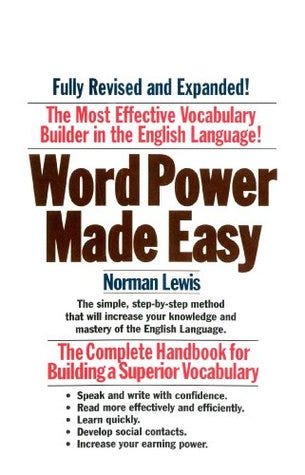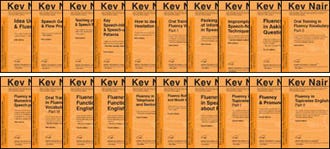
I taught myself English and became quite fluent in written and spoken aspects. This article explains how I did it and provides a complete road map for learners.
English is a foreign language to us Indians. Though we’re quite familiar with the English language, achieving fluency is different matter altogether.
Now, there’s fluency in written English and fluency in spoken English. Then, there is receptive vocabulary and productive vocabulary. One complements another but neither alone can make you fluent. It doesn’t take much time to get a good command of written English. All you have to do is understand a few principles of grammar and usage. Then build some vocabulary. But it takes much longer to get any command of spoken English. When it comes to speaking, a lot of constraints come into play. There is a constraint of time — you can’t think first and speak and there’s a fear of inadequacy, psychological blocks, and just the unfamiliarity with using foreign language. It’s something you have to work on for a very long time. There’s nothing like completion. It’s always work in progress.
Right then, I’d break down my journey from a complete novice to decently fluent into 3 phases.
Beginner
So, here I am. No knowledge of even basic grammar. Where do I start? Yes, grammar.
I came upon this book: Essential English Grammar by Raymond Murphy. It is ideal for beginners. It teaches grammar without making us aware that we’re learning grammar. It doesn’t go deep into the elements of grammar as does the book by Wren and Martin. It teaches just enough grammar to get the students started. It teaches in bits and pieces. It is divided into a large number of small chapters and each chapter has 2 pages. The left-hand page explains the theory with examples while the right-hand page has carefully designed exercises to practise the theory.
No, you can’t read this book once and become good at it. I went back and forth, did all the exercises, compared, contrasted, and reviewed it many times.
At this stage, the students should look out for examples in books, newspapers, magazines and try to work out the structure of the sentences and their grammar.
Intermediate
Now, I had a little bit of understanding of grammar, I promoted myself to study Intermediate English Grammar by Raymond Murphy. This book is a bit more detailed and longer but it retains the same design.
Here, we get into a little nitty-gritty of grammar. It names the concepts we learnt in the first book. Like verbs, nouns, and so on. It mixes concepts for better understanding. It contains more examples.

One of the most important things to learn is how to pronounce words in English. You see, without this step, you can never truly learn English. Even if you become an expert, you sound uneducated when you pronounce the words incorrectly. I was fortunate to come across Word Power Made Easy by Norman Lewis. This book taught me how to build vocabulary and how to pronounce right.
Word Power Made Easy is a wonderful book and helps gain the ability to understand any word just by its structure. You see, you can’t memorise every word in English. But you can understand how each word is built and by understanding a few core words, you can master the meanings of innumerable words.

What makes this book truly remarkable is that it not only teaches new words but gets you to play with those words, and use them in examples. By the time, you’re through with the book, you’ll have mastered all the words introduced in the book and what’s more, you’ll never forget them.
Again, we should deliberately seek out real-life examples to see how the principles are applied. We can start reading novels, articles, and things.

Advanced
Right then, I felt I had enough knowledge of grammar to begin a study of spoken English and learn to speak fluently. Fortunately, I chanced upon an ad in a newspaper about a self-study course called Fluentzy: The Fluency Development Course by Prof. Kev Nair. It had glowing reviews.
Now, Fluentzy course is the most comprehensive and very thorough. Prof. Kev Nair is a well-known authority and is considered “The Father of Fluency Development”. It is a set of 20 books. It doesn’t teach grammar. It is for people who already know English quite well and want to speak fluently. It asserts self-study is the only way to true fluency as there are a number of factors at play in real-time conversations. You can’t plan for them nor can an instructor correct you. You just have to understand the principles of spoken English and practise rigorously. This course asks for tremendous determination and passion. It asks for 2–3 hours of study everyday for at least 3 months. Now, it doesn’t mean to scare you but this is the price for true native-speaker like fluency. Of course, you can pace your study as convenient.

I’ll just give some highlights from this course.
1. Foreign speakers learn English the wrong way. We are taught to write English rather than to speak first.
2. There’s a lot of differences between written and spoken English.
3. The right way to learn to speak is in word-groups instead of individual words.
4. The way English is spoken is completely different from the way our languages are spoken.
5. Fluency is achieved only when our ears and tongue are trained in English. We may know English but the tongue has to be taught in English ways. And ears have to stop being hesitant to English sounds.
6. Fluency is achieved only through self-study, without any instructor, without any recordings. Any external means is a hurdle.
7. We should get exposed to spoken English a lot. We should read novels written in loose, conversational style. Newspaper, non-fiction books, magazines, and like should be avoided as they’re written for different purpose and aren’t suitable from fluency perspective.
8. We should avoid bilingual dictionaries and learn to think in English. We should buy at least one Advanced English dictionary and look up words for even simple words. Not any word, but fluency oriented words.
Okay, please share your thoughts and comments. Thank you.
